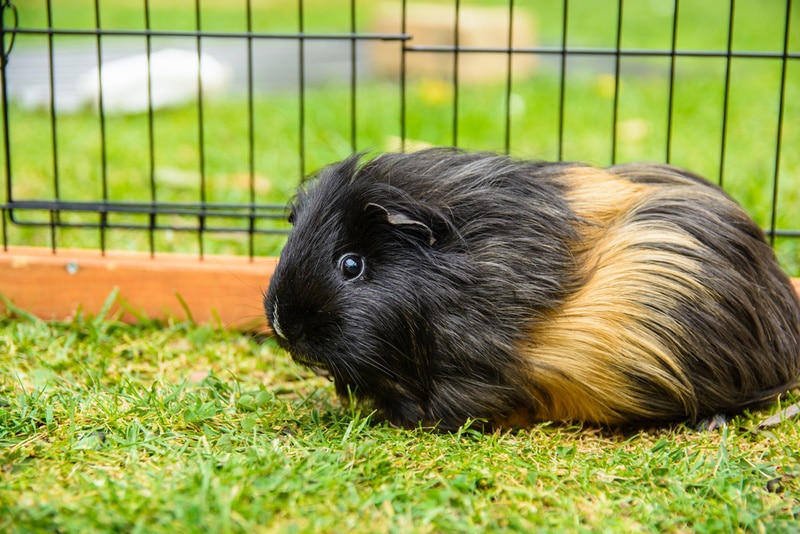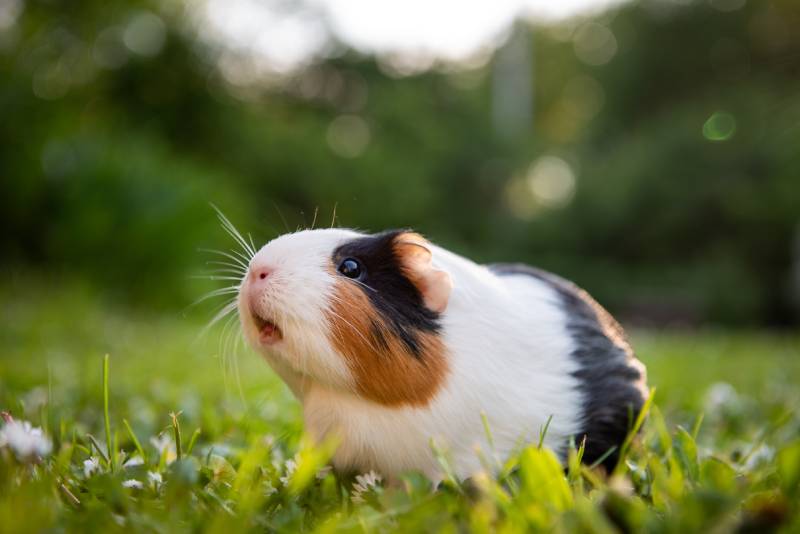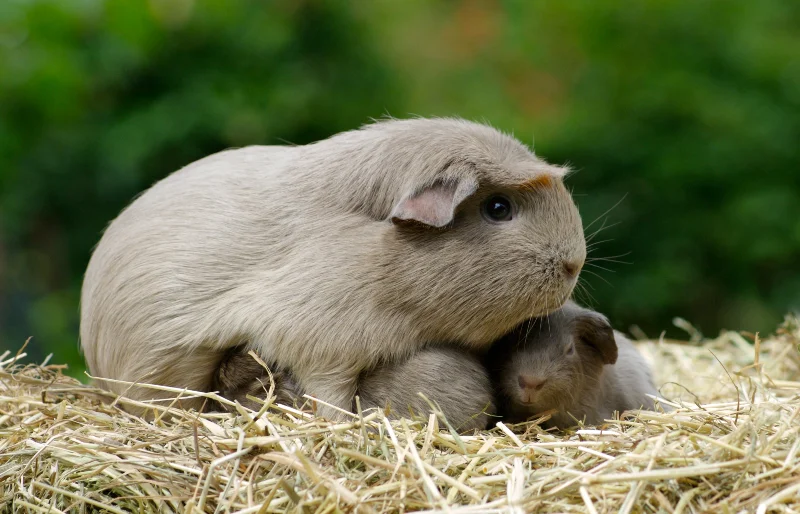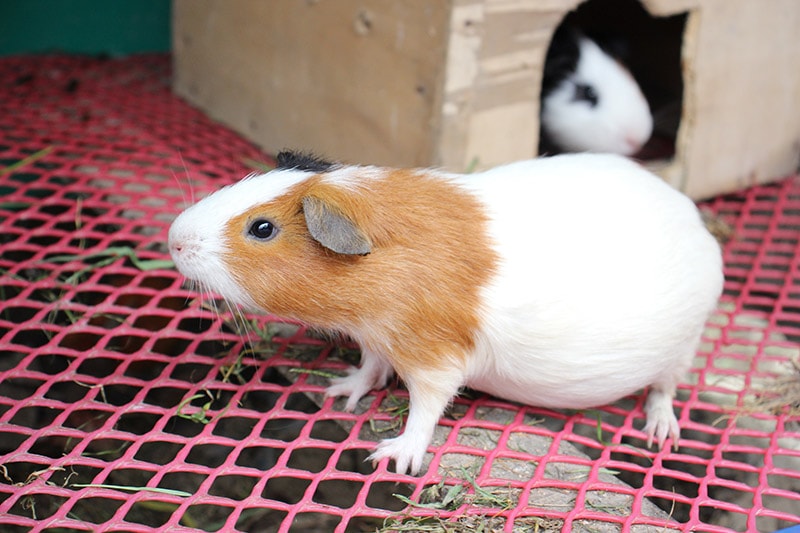Do Guinea Pigs Go Into Heat? Vet-Reviewed Reproductive Facts & FAQ

Updated on

Click to Skip Ahead
Guinea pigs, like other rodents, are prolific breeders that can produce up to five litters each year. Female guinea pigs (sows) can have heat cycles (estrus) at any time of the year, but they’re most common in spring and last 16 days.
Once the guinea pig enters a heat cycle, she’s fertile for about 6 to 11 hours—usually during the night. Females also enter a new heat cycle shortly after giving birth.
Sow Sexual Maturity and Reproductive Cycle
Sows can have their first estrus at 5 or 6 weeks of age and can breed year-round, but it’s best to wait to breed until the guinea pig reaches about 500 grams or 2 to 3 months of age. Guinea pigs shouldn’t be bred after 8 months of age, as fusion of the pubic symphysis can make pregnancy and delivery difficult.
Once pregnant, the sow has a gestation period of 65 days. Labor occurs abruptly and takes about 30 minutes. Difficult pregnancies are common, which is why it should be left to experienced breeders.
Guinea pig litters are around three to four pups, but they could be larger. Unlike some mammals, the pups are precocious at birth, covered in hair, with full teeth and open eyes and ears. Birth weight is usually between 60 and 100 grams. Young guinea pigs eat solid food within the first few days and wean at 14 to 28 days.
Postpartum estrus, a heat cycle that occurs after giving birth, can happen within 2 to 15 hours of delivery. If breeding occurs, it’s possible for a sow to be in heat while nursing or pregnant while weaning her pups.
How to Tell if a Guinea Pig Is in Heat

When sows go into heat, the boars will begin vocalizing with a rumbling sound that’s like purring. Sows may vocalize as well, but they tend to be restless during heat cycles. Boars also try to mount females if they’re kept in the same enclosure.
During heat, the membrane over the sow’s vagina will open up. This membrane closes once mating is complete and the pups are born, then reopens for the next heat cycle.
How to Tell If a Guinea Pig Is Pregnant
It’s difficult to determine pregnancy in the first few days, but guinea pigs get much bigger toward the end of pregnancy. Guinea pigs don’t build nests for babies like other animals, so you have to look for other changes like the size of the sow and a noticeable widening of the pelvis nearing delivery time.

Should Guinea Pigs Be Spayed?
Spaying guinea pigs is possible with the help of an experienced veterinarian, but it’s an expensive and risky option. It’s generally easier to neuter a male or keep the male and female guinea pigs separated to avoid accidental mating.
It’s not recommended for casual pet owners or amateurs to attempt to breed guinea pigs. This is not only because of the risks for the sow but because of the difficulty in finding homes for the litter. Guinea pigs are widely available in pet stores and from breeders, so the market doesn’t need more from inexperienced breeders and accidental pairings.
Conclusion
Guinea pigs can be abundant breeders with precocious babies. They can go into heat multiple times a year and produce numerous litters. Veterinarians don’t recommend amateur guinea pig breeding because of its risks, so it’s best to neuter any boars in the colony or keep the boars and sows separate to avoid accidental litters.
Featured Image Credit: Sopon Phutthima, Shutterstock











